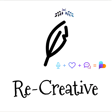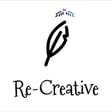
Teresa Alfeld and Doug and the Slugs and Me
Mark and Joe are joined by documentary film maker Teresa Alfeld. She's made two films, The Rankin File: Legacy of a Radical and Doug and the Slugs and Me.
Both of the co-hosts listened to (and loved) Doug and the Slugs when the Canadian band was popular. Teresa's best friend growing up was Shea Bennett, the daughter of Doug Bennett, who was the front-man and main songwriter for the band.
"For me, Doug was just Shea's dad, but I didn't appreciate the scope and magnitude of his career in their hey day," she says.
Teresa discovered Doug's music later in life, when she was choosing the score for The Rankin File, and she wanted music from the Vancouver scene in the 1980s, as the doc was set in the same time.
"It was such an absolute shock to hear their music. It was just so much richer, both musically and lyrically, than I thought."
She ended up using just Doug and the Slugs material exclusively for the film.
Then they take a deep dive into the story of Doug Bennett, the band, and how she created such a wonderful documentary.
A great conversation, not to be missed if you're interested in the 80s, the music business, and Doug and the Slugs.
For more info on this episode, visit the show notes page.
Re-Creative is co-produced by Donovan Street Press Inc. and MonkeyJoy Press.
Contact us: joemahoney@donovanstreetpress.com


